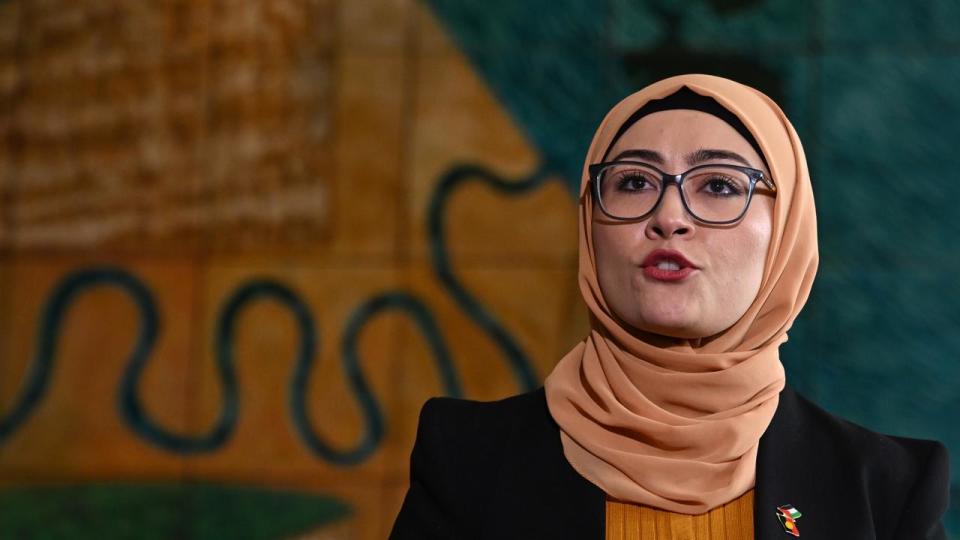Faith-based politics will erode social unity: PM
Australia should not go down the road of faith-based politics, the prime minister has warned, as parties vie for Muslim voters.
Senator Fatima Payman's dramatic exit from the Labor Party has raised questions about whether Labor can continue relying on votes from Muslim communities.
The West Australian senator resigned from the party over her stance on Palestine and has also met with representatives from The Muslim Vote, a grassroots organisation that is set to run candidates in some Western Sydney Labor strongholds.

But Prime Minister Anthony Albanese maintains that the nation's political parties should maintain social unity.
"I don't think, and don't want, Australia to go down the road of faith-based political parties because what that will do is undermine social cohesion," he told reporters on Friday.
"My party has ... people who are Catholic, people who are Uniting Church, people who are Muslim, people who are Jewish - that is the way that we've conducted politics in Australia, that's the way you bring cohesion."
Senator Payman's departure also signalled that Mr Albanese's next term could be a minority government, which Opposition Leader Peter Dutton said would be a "disaster" as it would include "Greens, the Green-teals ... and Muslim candidates from Western Sydney".
Cricket legend Usman Khawaja described Mr Dutton's comments "an absolute disgrace" and that he was "fuelling Islamophobia".
"It will included Muslim candidates from Western Sydney, it will be a disaster". As a Muslim who grew up in Western Sydney I find this comment from someone who is running for PM an absolute disgrace. Bigotry at its finest. Fueling Islamophobia from the very top. https://t.co/AyMSYGb57R
— Usman Khawaja (@Uz_Khawaja) July 4, 2024
Discussing the issue again on Friday, the opposition leader maintained this political situation would be bad for the economy because he said groups such as The Muslim Vote were too focused on issues outside of Australia.
"If you're a Senator for NSW, your first charge is to look after residents in NSW," he told the Today Show.
This does not mean there is a black and white line about the role of religion and politics, cabinet minister Bill Shorten said.
"We bring our values, it helps make us who we are," he said.
"But, of course, some of the worst countries in the world are where there are oppressive, theocratic governments who use religion to justify the persecution of minorities."
Former Prime Minister Scott Morrison's evangelical beliefs sometimes fell under the microscope during his term.
Senator Payman has rubbished claims she would join the Muslim Vote movement and branded suggestions her departure was purely a result of her religion as insulting.
Her title, as the first woman to wear a hijab in Australian Parliament, has made her faith uniquely visible and had led to situations where she said she was "singled out".
"Religion is something that's private to me, it determines my moral compass, and it's a matter for me to hold myself to a higher standard," she told ABC radio.
"That being said, I don't go around imposing my religious views on other people, and neither do I expect that they make decisions the way I do."


